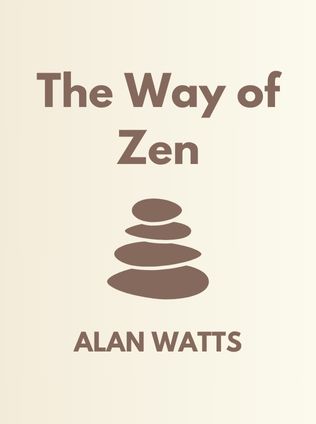
The Way of Zen
By Alan Watts
Published 01/1957
About the Author
Alan Watts, born in 1915, was a British philosopher, writer, and speaker who became one of the most influential figures in introducing Eastern philosophies, particularly Zen Buddhism, to the Western world. His early fascination with Eastern thought began in his youth and developed into a lifelong passion that would shape his career. Watts's ability to translate complex concepts into accessible language made him a unique bridge between the East and West, allowing many to explore Zen and other spiritual traditions without the barriers of cultural and linguistic differences. His works, including The Way of Zen, The Wisdom of Insecurity, and The Book, have left a lasting impact on spiritual and philosophical thought in the modern era.
Watts lived a life that reflected his philosophical explorations. He was known for his engaging and charismatic speaking style, which captivated audiences in lectures and radio broadcasts. His personal life, however, was marked by complexity and contradiction. Despite his deep insights into the nature of the self and reality, Watts struggled with alcoholism and turbulent relationships, embodying the very human tensions between knowledge and experience. Nonetheless, his legacy as a philosopher who made the esoteric teachings of the East accessible to the Western mind remains significant.
Main Idea
The Way of Zen by Alan Watts is a comprehensive introduction to Zen Buddhism, a spiritual tradition that emphasizes direct experience and the immediate realization of one's true nature. Watts explores the origins and development of Zen, its key teachings, and its relevance in the modern world. The book is not merely an academic treatise; it is an invitation to experience Zen as a living practice that transcends the boundaries of thought and language. Through his writing, Watts seeks to demystify Zen, presenting it as a practical and profound path to liberation from the illusions of the mind and the constraints of societal conventions.
Watts argues that Zen is a way of liberation that frees individuals from the artificial constructs of the ego and societal norms. By embracing the principles of Zen, one can experience life in its purest form—free from the distortions of thought and the dualities of good and evil, pleasure and pain. The essence of Zen, according to Watts, is found in the direct experience of reality, beyond the limitations of language and intellectualization. This book serves as a guide to understanding and experiencing this profound spiritual tradition in everyday life.
Sign up for FREE and get access to 1,400+ books summaries.
You May Also Like
The Life-Changing Magic of Tidying Up
The Japanese Art of Decluttering and Organizing
By Marie KondoHeaven Is For Real
A Little Boy's Astounding Story of His Trip to Heaven and Back
By Todd BurpoYou Are A Badass
How to Stop Doubting Your Greatness and Start Living an Awesome Life
By Jen Sincero



















